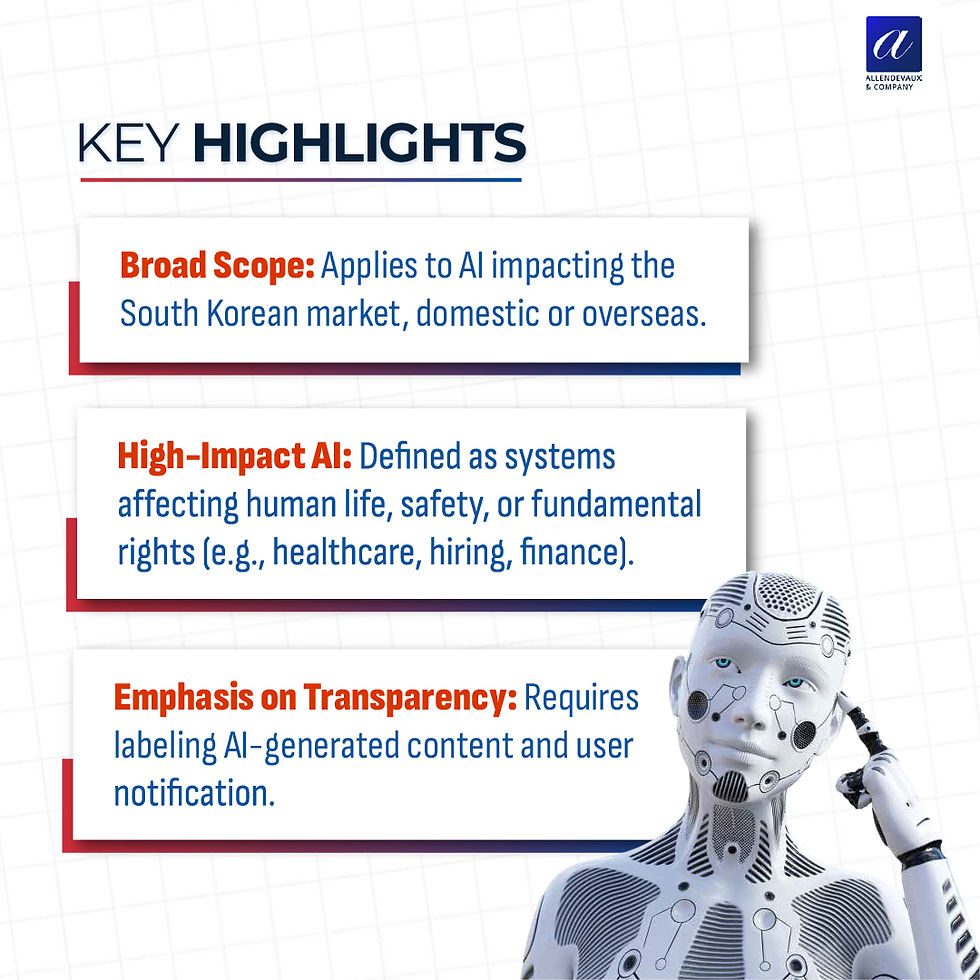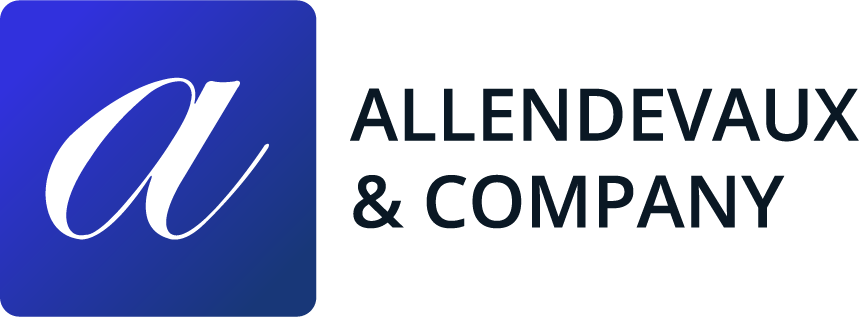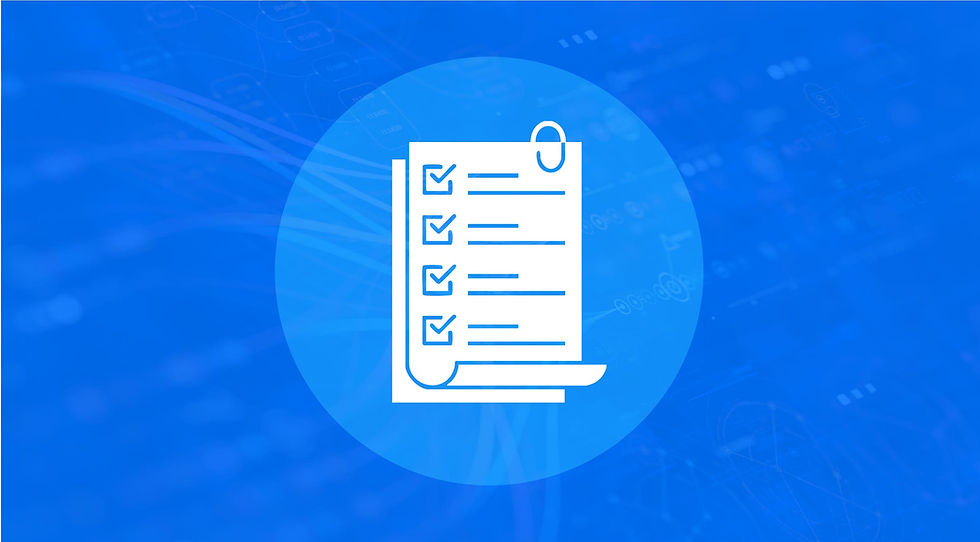South Korea AI Law 2026: Compliance, Business Impact & Preparation
- bakhshishsingh
- Sep 25, 2025
- 3 min read
Artificial Intelligence (AI) is rapidly transforming industries — from healthcare to finance — but it also raises urgent questions about accountability, safety, and ethics. To address these concerns, South Korea has introduced a new AI law, set to take full effect by 2026.
This legislation places South Korea among the growing list of nations creating frameworks for AI governance, ensuring both innovation and public trust. For organizations operating in or impacting the South Korean market, compliance will not only be a legal necessity but also a competitive advantage
Key Highlights of South Korea’s AI Law

The law is notable for its broad scope and strong emphasis on accountability.
Applies Globally: Whether developed domestically or abroad, any AI system impacting the South Korean market falls under its scope.
High-Impact AI: Systems affecting human life, safety, or fundamental rights — such as in healthcare, hiring, or finance — face the strictest oversight.
Transparency Requirements: Organizations must clearly label AI-generated content and notify users when interacting with AI
This approach aligns with global efforts to balance AI adoption with user safety and ethical safeguards.
Why This Law Matters

Ignoring compliance could prove costly. The law introduces:
Financial Penalties: Fines up to KRW 30 million (approx. $20,870).
Criminal Liability: In severe cases, violations could even lead to imprisonment.
Reputational Risk: Non-compliance erodes customer trust and can damage global brand perception.
More broadly, the law reflects a global trend toward stricter AI regulation. Similar frameworks are being rolled out in the EU, U.S., and beyond, signaling a new era where AI ethics and accountability are no longer optional
Impact on Organizations

Businesses using AI in South Korea will face several obligations:
Operational Alignment: Companies must identify “high-impact AI” within their systems and assess risks accordingly.
Transparency for Users: Clear disclosure of AI usage and outputs will be mandatory.
Documentation & Oversight: Organizations must maintain safety records and impact assessments for audits by regulators.
These requirements demand greater governance, monitoring, and ethical design principles throughout the AI lifecycle
5 Key Steps to Prepare for South Korea’s AI Law

To stay ahead of compliance deadlines and avoid penalties, organizations should begin preparing now. Here are five essential steps:
Assess AI Systems: Evaluate whether your current or planned AI projects qualify as “high-impact.” Document associated risks.
Establish Transparency: Clearly label AI-generated content and communicate its use to end users.
Build a Risk Framework: Implement ongoing risk management and mitigation strategies tailored to AI operations.
Strengthen Governance: Appoint responsible personnel or create an AI ethics committee to oversee compliance.
Stay Informed: Continuously monitor updates from the Ministry of Science and ICT to adapt to evolving requirements
Taking these steps early positions your organization not only to comply but to lead responsibly in the AI economy.
The Bigger Picture: AI, Ethics, and Cybersecurity
South Korea’s new law is not just about compliance — it’s about trust. As AI systems grow more powerful, cybersecurity and ethical safeguards must evolve alongside them. Transparency, accountability, and strong governance frameworks will separate companies that thrive from those that fall behind.
At Allendevaux, we help businesses navigate complex regulations like South Korea’s AI law by combining compliance expertise, AI risk assessments, and cybersecurity resilience strategies.
Final Thoughts
With enforcement set for 2026, South Korea’s AI law sends a clear message: responsible AI is the future of business. Organizations that take proactive steps today — from labeling AI-generated content to building robust governance frameworks — will not only avoid penalties but also earn customer trust and global credibility.
👉 Contact us today to ensure your AI initiatives remain compliant, ethical, and resilient in the face of this new regulatory era.





Comments